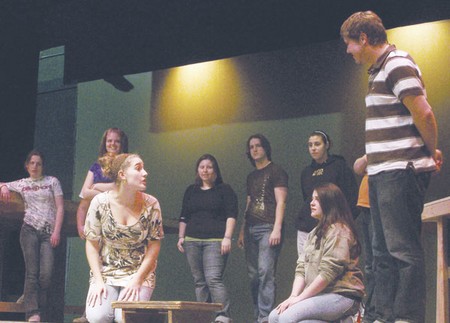A further important aspect of characterization is accent. A Midsummer Night’s Dream has three distinct groups of people, who must be differentiated by the way they speak. There are the royal and aristocratic Athenians, Theseus and Hippolita, Egeus and the four young lovers; the rustic artisans, ‘rude mechanicals’ of whom Bottom is the self-elected leader; and the fairies, Oberon, Titania, Puck and Titania’s attendant fairies. Clearly the royals and gentry speak very good R.P. or whatever accent is appropriate, the mechanicals must have a degree of unity in their accent to indicate more their class than their origin. In British productions this is usually southern English peasant speech of a vague and general kind, often referred to as ‘stage Mummerset’, but there’s no reason why they should not speak in any English or American country accent, as long as they can be clearly understood. The one accent that doesn’t work is any sort of big city accent, Cockney, Scouse, New Yorker. They are essentially country folk. The fairies are best off spoken in R.P.; certainly their speech must somehow capture the same energy and perhaps slight strangeness that their movement suggests. Puck, a curious androgynous creature who is equally well acted by a man or a woman, is above all, a very clever child, sexless, mischievous and sometimes very sad. He croons, sings, parodies, puts on funny voices; a protean display that must make us wonder just what he is. He is utterly alone, a brave and mysterious little creature.

The effectiveness of accent has been demonstrated by the remarkable Ian McKellen, playing Richard III. His performances are always distinguished by precision and ingenuity of characterization. His Richard is a smooth, pallid, slightly deformed electric eel, but the most striking characteristic is his use of an extraordinary ‘advanced R.P.’, an aristocratic accent of the greatest individuality, eccentricity and arrogance. By this means, he conveyed the impression that he was the only true aristocrat present, that he was the possessor of royal mysteries and strange knowledge, that he was superior in every way to those around him – a daring technical device, superbly carried off by a virtuoso actor.